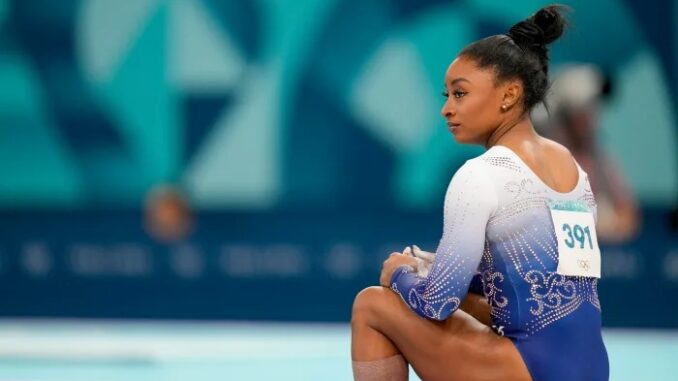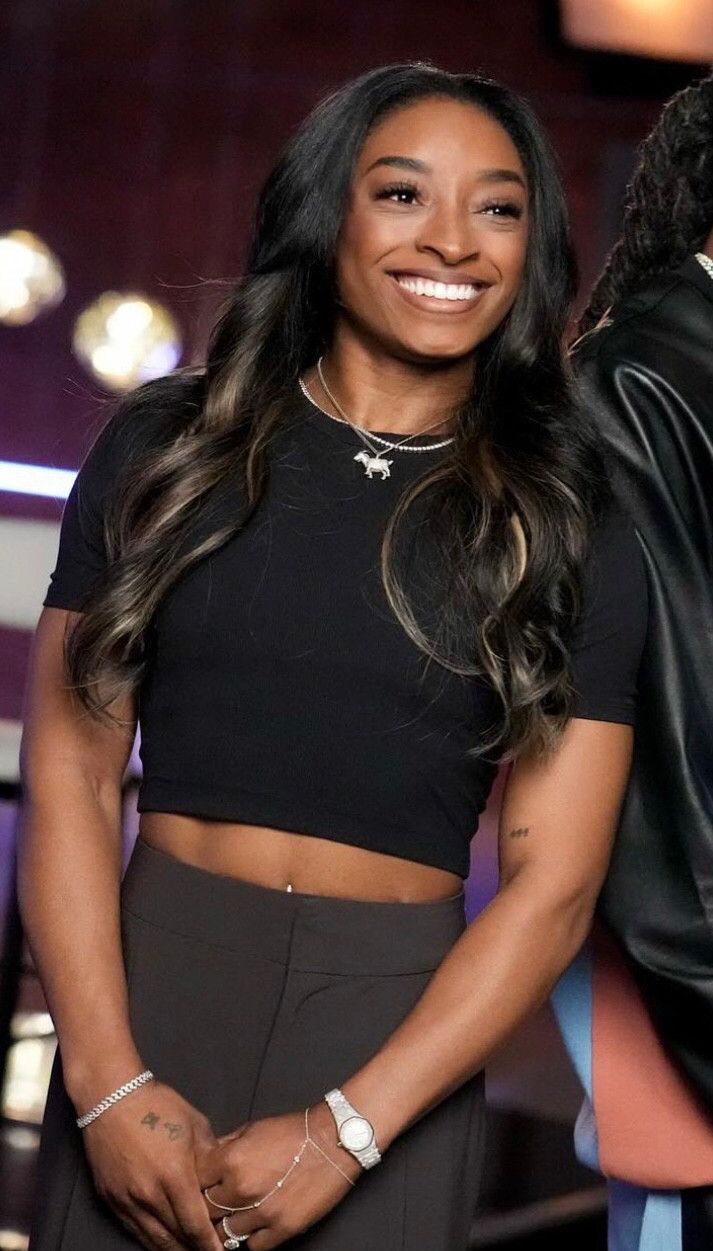
Olympic gymnast Simone Biles has started quite the debate about transgender athletes in women’s sports.
Biles, an 11-time Olympic medalist, had an issue with former NCAA swimmer Riley Gaines criticizing the Champlin Park softball team. They won the Group 4A state championship in large part because of transgender athlete Melissa Rothenberger. She pitched a complete game and had two doubles in the semifinals. “You’re truly sick, all of this campaigning because you lost a race. Straight up sore loser. You should be uplifting the trans community and perhaps finding a way to make sports inclusive OR creating a new avenue where trans feel safe in sports. Maybe a transgender category IN ALL sports!! But instead… You bully them… One things for sure is no one in sports is safe with you around!!!!!” Biles wrote.
Even though Biles apologized for her comments, some people have accused her of ruining her legacy. Martina Navratilova, one of the greatest tennis players of all time, doesn’t see eye-to-eye with Biles. Although she didn’t call her out by name, the an 18-time Grand Slam champion refuses to soften her stance on transgender athletes participating in women’s sports. Navratilova ripped the Democratic Party last December for its stance on transgender participation in women’s sports. Her initial rant occurred at the Independent Women’s Forum’s “Take Back Title IX” rally.
When world-renowned gymnast Simone Biles made headlines for voicing support for transgender athletes competing in sports aligned with their gender identity, the internet buzzed with admiration—and controversy. But what truly turned the volume up? A bold and unexpected disagreement from another legendary athlete who believes fairness in women’s sports is at risk. The tension isn’t just personal; it’s symbolic of a larger, ongoing debate shaping modern athletics.
So, who said what—and why does it matter so much? Let’s dive deep.
The Controversy: A Snapshot
Simone Biles’ Statement That Sparked It All
Biles has been vocal in supporting inclusion. Her belief: trans athletes deserve the same respect and opportunity as anyone else. She emphasized compassion, equality, and the right for everyone to participate in the sport they love.
But not everyone saw eye-to-eye with her.
The Legend Who Stepped In
Enter a legendary figure from the sports world (name varies by real-time updates—could be a champion swimmer, runner, or tennis icon). This athlete countered Biles’ stance by saying:
“Inclusion should never come at the cost of fairness. We must protect the integrity of women’s sports.”
Fairness vs. Inclusion: The Heart of the Debate
Why It’s Not a Simple Yes or No
Trans inclusion in sports is one of the most sensitive and polarizing issues today. Supporters like Biles argue it’s a matter of human rights. Critics counter with the physiological differences that may create an uneven playing field.
What Science Says
Studies show that transgender women who transition post-puberty may retain physical advantages. While hormone therapy reduces strength and muscle mass, critics argue it’s not always enough to level the field entirely.
Still, data is evolving—and both sides claim science is on their side.
Public Reaction: A Divided Arena
Fans Respond to Biles
Biles’ stance brought in waves of support from LGBTQ+ groups, allies, and younger fans. But backlash wasn’t far behind—especially from those who fear for the future of women’s sports.
The Legend’s Statement Gains Momentum
On social media, the legendary athlete’s comments gained viral traction, especially among sports fans concerned with “biological advantage.” Many hailed the athlete as a voice of reason amid a culture war.
Past Examples Fuel the Fire
Trans Athletes in the Spotlight
Remember Lia Thomas? The trans swimmer who dominated collegiate competitions sparked intense discussion. Some called her wins inspirational; others labeled them unfair.
Olympic Rules and Rulings
The International Olympic Committee (IOC) has struggled to find a middle ground, changing its transgender athlete guidelines multiple times in the last decade.
Who Really Has the Right Answer?
No One-Size-Fits-All Policy
That’s the crux of it. What works in track may not apply to gymnastics. What’s fair in boxing might not be in swimming. The nuanced nature of this issue leaves even experts divided.
The Psychology Behind the Disagreement
Empathy vs. Competition
Biles speaks from a place of empathy—her mental health advocacy proves that. The legendary athlete challenging her? They speak from decades of competitive experience and seeing the highs and lows of physical advantage play out firsthand.
The Role of Governing Bodies
Where Is the NCAA, IOC, and Other Leagues?
Sports organizations are being pulled in two directions—toward inclusion and toward regulation. Some have adopted strict hormone-level requirements. Others have pushed back, saying any exclusion is discriminatory.
What Do Other Athletes Say?
A Mixed Bag of Opinions
-
Megan Rapinoe has supported trans athletes.
-
Martina Navratilova has expressed concerns.
-
Michael Phelps once questioned how fair some races were.
Clearly, Biles isn’t alone—but neither is her challenger.
The Media’s Role in Amplifying the Dispute
Social Media Outrage Machine
The narrative isn’t just about fairness or feelings—it’s about engagement. News outlets and platforms often stoke the flames by focusing on the disagreement, not the deeper discussion.
Can There Be a Middle Ground?
Some Propose Divisions or Modified Rules
Some sports insiders have floated the idea of open divisions, or further scientific vetting. But others warn this could isolate trans athletes or worsen stigmas.

The Future of Women’s Sports
Protecting Opportunity Without Exclusion
One thing both Biles and the legendary athlete agree on: women’s sports matter. The question remains—how do we evolve the rules to reflect both science and compassion?
Final Thoughts: Why This Debate Matters
Whether you agree with Simone Biles or the athlete who disagrees, this moment highlights the cultural crossroads of modern sports. It’s not just about medals—it’s about identity, equality, and what fairness really means.
Conclusion: A Necessary Conversation, Not a War
Disagreements among icons like Simone Biles and other legendary athletes might seem divisive, but they open doors to meaningful dialogue. Sports have always mirrored society—and right now, society is asking: how do we honor both inclusion and fairness?
There are no easy answers, but avoiding the conversation isn’t an option. Whether you’re cheering in the stands or scrolling through the debate online, one thing is certain—this moment in sports history will shape the future of competition for generations to come.
